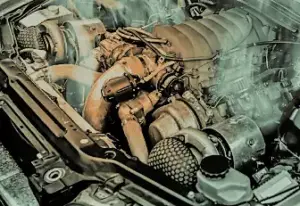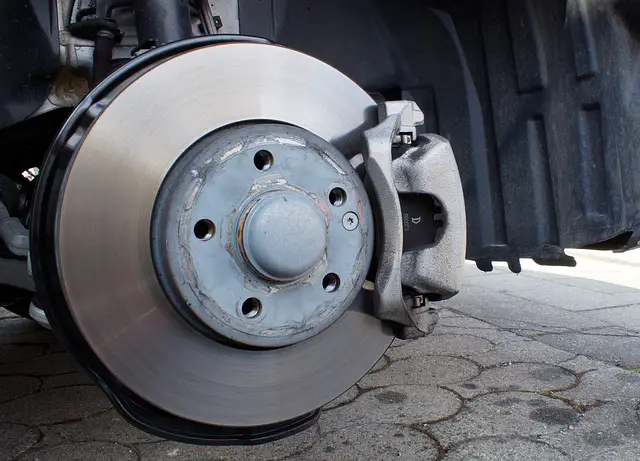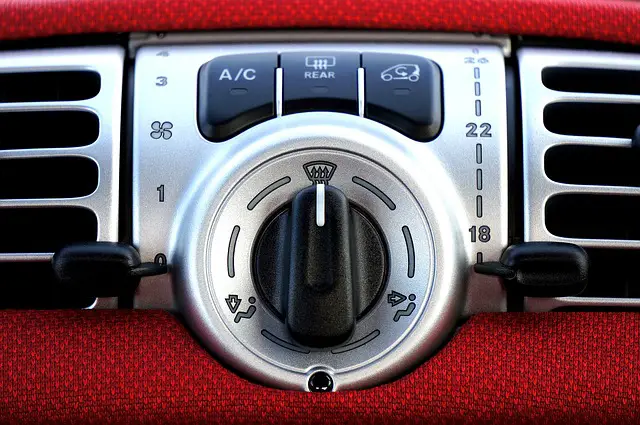We know we need oil to make sure our engine is lubricated. We know what it looks like, but what does it smell like?
Here we’ll look at mineral engine oil and its more modern cousin, synthetic oil. Furthermore, we’ll look at the smell of new, old, and burning oil. Finally, we’ll address what the cause could be if you smell oil in your cabin.
What Does New Car Oil Smell Like?
Fresh car oil from a recently opened bottle doesn’t actually smell of anything much. This is due to the oil being refined and supplemented with additives. This helps to keep it in a neutral lubricating state. If anything, it may have a slight gasoline scent but nothing more.
It can change its appearance and smell as it comes into contact with other elements, such as water and coolant.
When oil is drilled from soil or the ocean bed, it is in a crude form. In this state, it is unsuitable to be placed straight in a car engine. Crude oil can smell either of sulfur – often described as rotten eggs – or sweet like fruit, depending on its composition.
The crude oil used to make engine oil is light crude oil.
Heavy crude oil is normally black in appearance; as you know, new car engine oil normally has a golden or yellow tinge. This confirms its the light variety.
However, once it’s opened and inside the engine, things change.
What Does Old Car Oil Smell Like?
Generally, engine oil is considered old if it has been more than 6000 miles since an oil change or one year has passed.
Through contact with the metal components of your engine and the cycle of extreme heat and cooling, the oil can start to deteriorate.
As the oil breaks down from its refined state, it can revert to its smell when it first comes from the ground or sea bed.
This is due to the separation of the additives and detergents from the oil. The changes and smell are fairly insignificant but noticeable.
As engine oil contains a significant amount of natural gas, when it breaks down, the smell that you may notice more is a slight gasoline odor.
As mentioned, the smell should not be overpowering, and if you smell a strong odor of gas from your engine or in your cabin, this could denote other mechanical issues that are not connected to oil.
What Does Burning Car Oil Smell Like?
Burning oil smells acrid and bitter. In quantities – larger than a car can burn – it can irritate the eyes and nasal passages. However, if a car is burning oil, this may still be noticeable, but it won’t be dangerous in small quantities.
You may detect a gasoline scent within this because, as we’ve discussed, light crude oil is very much gasoline-based in its crude state.
Is It Normal For A Car To Smell After An Oil Change?
New oil smells neutral. In comparison, older oil can have a slight gasoline odor. The only smell you are ever likely to encounter after an oil change is a burning oil smell.

If you hadn’t noticed this smell before the oil change, then it’s very likely the cause is that the new oil dripped onto your car’s engine block as it was being poured in. If this happened, a conscientious mechanic would always wipe the engine down – some less professional ones may not!
When the car runs, the engine block temperature increases and can burn the oil on its surface.
If you haven’t recently changed your oil, the burning smell indicates you have an oil leak.
What Does Synthetic Car Oil Smell Like?
Synthetic car oils are also natural oil-based. The big difference is that they use infinitely better quality oil than the crude oil that is refined and used in mineral engine oil.
Therefore new synthetic oil doesn’t give off an odor as the oil used is not from a gasoline base like mineral oil.

Synthetic car oil can have its oil molecules altered and tailored to suit more modern car engines. Because of this, they tend to last longer and don’t separate from additives and detergents like mineral oil.
Therefore even older synthetic oil may not give off the scent that mineral oil does.
If you suspect the smell is gasoline and not oil, then read our article on Reasons A Car Smells of Gasoline
Why Does My Car Smell Like Oil Inside The Cabin?
Oil Leak
The air that comes through your car vents into the cabin has been through the engine compartment.
The smell will find its way into the cabin if you have an oil leak.
A quick look underneath your car in the morning after you park it overnight or a look around the engine area will show if you have a leak or not.

If you don’t have a leak, it could be that it isn’t an oil smell.
Rubber Hoses
All car hoses are made from synthetic rubber. Synthetic rubber is made from natural gas and oil. Consequently, it will smell like burning engine oil when it gets hot or burns.
The engine and the alternator do get hot and are the only parts under the hood that can generate enough heat to burn rubber. The alternator is normally found to the left of your car engine and sits down quite low.
Check here and also around the engine for any hoses that may be in contact with these parts.
Cabin Filter
Cabin filters should be changed regularly and per the manufacturer’s guidelines. They often get overlooked; however, they can become clogged and hold moisture when they do.
Some people have described the resulting smell in the aircon system as an oil-like odor, but most people describe it as a sweet decomposing smell.

However, this would be the next place to check if you have ruled out an oil leak and burning rubber.
Conclusion
New engine oil doesn’t smell of anything much. It just might have a slight gasoline scent, but it will be hardly noticeable.
As it ages and the additives and detergents break away from the oil molecules, you may begin to smell a gassy odor.
Burning oil, however, gives off an acrid and more intense fuel smell. You may also feel slight irritation in your nasal passages and the back of your throat.
Synthetic oil smells the same as mineral oil but not as strongly. This is because the base oil used in production is of better quality, so it has a less intense starting point.





![Does Synthetic Oil Expire and Go Bad? [ANSWERED FULLY] Oil-Check-woman](https://carzaza.com/wp-content/uploads/2024/02/Oil-Check-woman-300x193.png)







